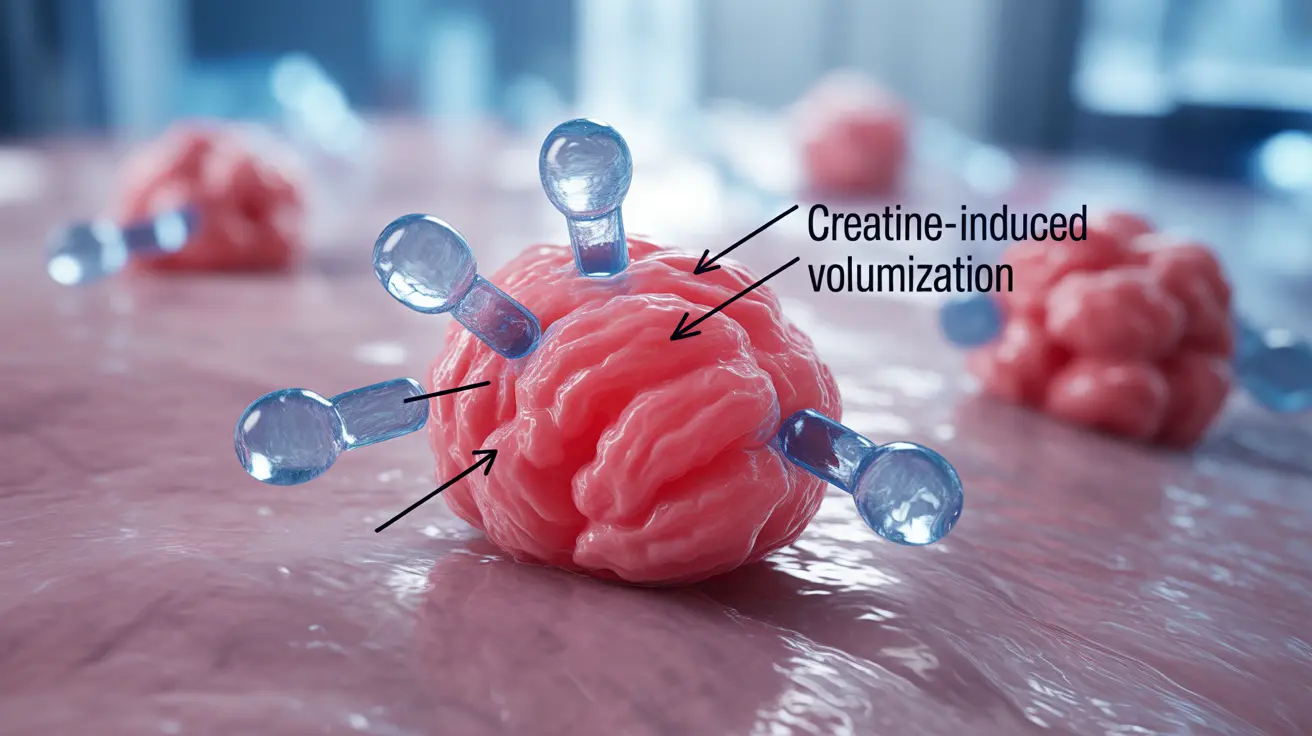Creatine supplementation has become increasingly popular among athletes and fitness enthusiasts for its proven benefits in muscle growth and performance. However, many users experience a common side effect known as creatine bloating. This comprehensive guide will help you understand why this occurs and how to effectively manage it while still benefiting from creatine supplementation.
How Creatine Affects Water Balance in Your Body
Creatine naturally draws water into your muscle cells through a process called cellular volumization. This mechanism is actually part of how creatine helps build muscle, but it can also lead to temporary bloating and water weight gain, especially during the initial supplementation period.
The Science Behind Creatine Water Retention
When you take creatine supplements, your muscles store this compound along with additional water molecules. This increased water content in muscle cells can cause a temporary increase in muscle volume, leading to what many people experience as bloating or puffiness.
Managing Creatine-Related Bloating
Proper Dosing Strategies
One of the most effective ways to minimize bloating is to carefully manage your creatine intake. Starting with a lower dose and gradually increasing it can help your body adjust more comfortably. A typical maintenance dose of 3-5 grams daily is often sufficient for most people.
Hydration and Timing
Maintaining proper hydration is crucial when taking creatine supplements. Drinking plenty of water throughout the day helps your body process creatine more effectively and may actually help reduce bloating symptoms. Additionally, timing your creatine intake with meals can help improve absorption and minimize digestive discomfort.
Duration and Expected Timeline
The bloating effect from creatine supplementation is typically temporary. Most people experience the most noticeable water retention during the first 1-2 weeks of supplementation. After this initial period, many users report that the bloating subsides as their body adjusts to the supplement.
Tips for Minimizing Creatine Bloating
Consider these practical strategies to reduce bloating while taking creatine:
- Choose micronized creatine monohydrate for better absorption
- Take creatine with meals rather than on an empty stomach
- Maintain consistent daily water intake
- Avoid excessive salt intake while supplementing
- Consider skipping the loading phase if you're sensitive to bloating
Frequently Asked Questions
What causes creatine supplementation to lead to bloating and water retention?
Creatine causes bloating primarily because it draws water into your muscle cells through osmosis. This cellular hydration is actually beneficial for muscle growth but can temporarily increase overall body water content, leading to a bloated appearance.
How can I reduce or prevent bloating when taking creatine supplements?
You can minimize bloating by starting with a lower dose, staying well-hydrated, choosing high-quality creatine monohydrate, and taking it with meals. Avoiding the loading phase and maintaining consistent daily supplementation can also help reduce bloating effects.
What are the typical symptoms and duration of creatine-related bloating?
Common symptoms include a fuller appearance, slight weight gain, and mild stomach discomfort. These effects typically last 1-2 weeks as your body adjusts to creatine supplementation, after which most people notice a significant reduction in bloating.
Is creatine safe for people with kidney problems or other health conditions?
While creatine is generally safe for healthy individuals, those with kidney problems or other medical conditions should consult their healthcare provider before starting supplementation. Current research shows that creatine is safe for healthy individuals when taken as directed.
Does skipping the creatine loading phase help minimize bloating and weight gain?
Yes, skipping the loading phase can help reduce initial bloating and water weight gain. While it may take longer to reach maximum muscle saturation, many people find this approach more comfortable and easier to maintain long-term.




